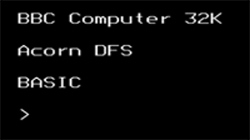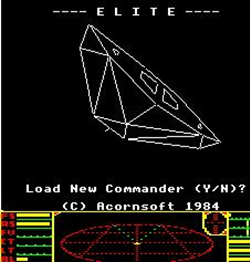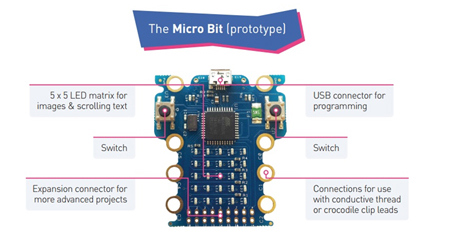For just £300 you could have one at home and pretend you were Matthew Broderick in the 1983 movie War Games and launch a nuclear attack on the world... just me?
It does, however, pain me to accept that over 30 years have passed since the BBC Micro was launched. I was about seven years old when the first BBC Micro's arrived at our school and so began my lifelong fascination with technology and the art-of-the-possible.
The mighty micro
Early in 1980 a BBC documentary aired called 'The Might Micro' where Dr Christopher Evans predicted the oncoming computer revolution. It was this documentary that prompted the BBC to embark on a new initiative called the 'BBC Computer Literacy Project' where viewers would be taught via a TV programme called, wait for it... 'The Computer Programme'.
The BBC Engineering team were called upon to draft a specification for new microcomputer that would complement the TV series and it was ultimately Acorn who won the contract to build the BBC Micro, much to the consternation of Sir Clive Sinclair who failed to secure the contract for his company Sinclair Research.
The BBC Micro's success was its simplicity and being true to its basic tenet: 'to help a generation learn to use and code computers'. It came in various models, all of which ran an 8-bit MOS based CPU running at 2Mhz and for the rich kids there was the fully loaded BBC Micro Master with 128k as opposed to the 16k or 32k models for the lower classes. It could handle eight colours and had four channels of mono sound output.
A real selling point for the BBC Micro was the ability to add physical ROM chips to the mainboard which offered instant access to dedicated programmes from the command line. Coding in BASIC could be done straight from the command line as well and kids all over the UK were wowing their peers with their very first 'Hello World' programmes.

The BBC Micro command line, it actually says it all...
It was a true success with 80 per cent of British schools enjoying a BBC Micro along with a CUB monitor, floppy drives and printer all loaded onto a trolley to be moved from classroom to classroom, it was a different sort of mobile computing in those days...
It also spawned many games that are still talked about, or even played today, such as Elite and Meteors and educational games such as Granny's Garden which many have fond memories playing at school.

Elite set a new standard in games
The BBC Micro Jr
Roll forward 30 odd years and the BBC have recently announced a successor to the BBC Micro. In partnership with over 25 organisations, including Samsung, ARM and Microsoft, they plan to give a personal coding device free-of-charge to every child in year seven across the country. This equates to around a million devices in total. This initiative is in support of the UK government’s new national curriculum where children as young as five will learn how to code.

BBC Micro Bit is simple and to the point
The BBC Micro Bit, as it's being called, is a small, wearable device with an LED matrix display that kids can programme via USB and a PC. The BBC Micro Bit is very basic, which is a good thing as teaching kids how to code has to start at the beginning and have a sense of quick success to keep the interest going.
The BBC press release for the Bit suggests 'The BBC and its partners recognised that a hands-on learning experience could help children grasp the new computing curriculum in ways that other software and traditional classroom learning couldn't. In particular, the Micro Bit can help learners develop an intuitive understanding of physical concepts in technology and computing, which helps develop complex thinking, analytical and problem-solving strategies. Early feedback from teachers has shown that it encourages independent learning, gives pupils a strong sense of achievement, and can inspire those who are not usually interested in computers to be creative with it.'
BitTV coming soon
The BBC are planning some serious support for this across their TV programming as well. They plan to have content on CBBC, live BBC Learning lessons and other partner content to support teachers, parents and kids to make best use of the BBC Micro Bit. They have suggested that major shows such as Doctor Who, EastEnders and The One Show will also be used to promote creative thinking around the BBC Micro Bit.
The BBC have made it clear that they do not wish to compete with the Raspberry Pi, in fact the BBC Micro Bit will complement the Pi as it will allow connectivity between devices. It's also reported that Pi's creator Eben Upton is planning to line up resources in support of the Bit.
So it seems that everyone is excited about this new initiative and rightly so. The original BBC Micro was instrumental in educating and inspiring a generation in coding and computers, teaching us the art-of-the-possible. Many of us began our careers in technology thanks to the influence of the BBC Micro and no doubt the new BBC Micro Bit will have the same impact on a new generation of kids, some of who will no doubt be writing a similar article to this one 30 years from now.

















